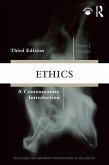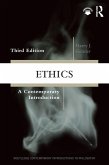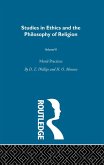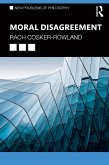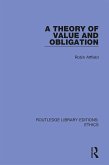Dieser Download kann aus rechtlichen Gründen nur mit Rechnungsadresse in A, B, BG, CY, CZ, D, DK, EW, E, FIN, F, GR, HR, H, IRL, I, LT, L, LR, M, NL, PL, P, R, S, SLO, SK ausgeliefert werden.
--Joseph Steineger, Lindenwood University, USA
"A broad and keen scholar and an engaging and crystal-clear teacher, Harry Gensler introduces ethics with an approach that is truly fresh. He shows how the golden rule of treating others only in ways that are consistent with how we want to be treated can be developed into a rational framework for ethics; and he treats an ample range of problems in theoretical and applied ethics."
--Jeffrey Wattles, Kent State University, USA, Emeritus
"Harry Gensler's Ethics: A Contemporary Introduction is one of the very best books of its kind. It is widely used and has been translated into four different languages. This new and improved version of Gensler's textbook is notable for its clarity and rigor. It is particularly helpful in the way it sets out strong arguments for and against many important views and theories. Students who use this book will learn a great deal about logic and critical thinking."
--Thomas Carson, Loyola University Chicago
"Fr. Gensler makes significant modifications to his Second Edition in this his Third Edition of his incisive introduction to philosophy. He retains his focus on the golden rule, but now applies its ethical reasoning to more cases and also includes more advanced topics. Students will benefit in particular from the upgraded Ethicola instructional program that is included with the text."
--James Swindal, Duquesne University



